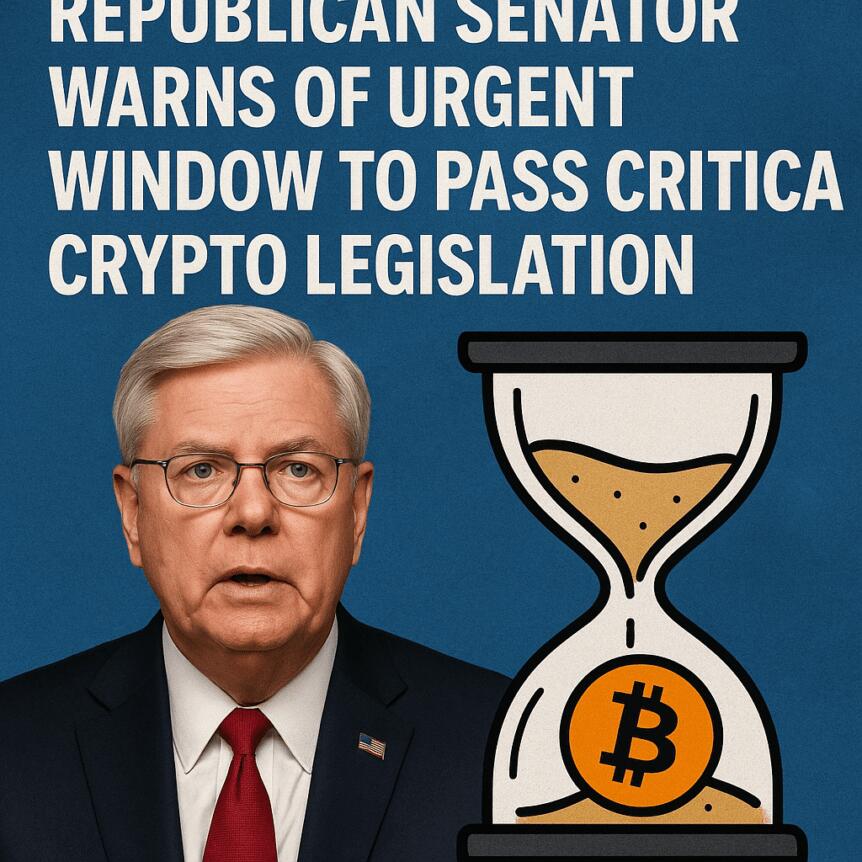North Carolina Senator Thom Tillis has issued a stark warning to crypto advocates and industry insiders: there are only a few months left for Congress to push through meaningful legislation before the upcoming midterm elections shift political priorities and stall progress. With key bills like the proposed market structure framework in limbo, the window for legislative action on digital assets appears increasingly narrow amid ongoing political turbulence.
- Senator Thom Tillis warns that limited time remains for Congress to pass crypto legislation before the 2026 midterm elections.
- The market structure bill, passed by the House and under review in the Senate, faces legislative hurdles amid a government shutdown.
- Crypto-related bills such as the CLARITY Act have been delayed, complicating efforts to establish clear regulation for digital assets.
- Nominee for CFTC chair, Michael Selig, awaits Senate confirmation amid ongoing political debates.
- The broader landscape for crypto regulation is becoming increasingly uncertain as US policymakers grapple with competing priorities.
In a recent statement, North Carolina Senator Thom Tillis, a member of the Senate Banking Committee and a vocal supporter of crypto regulation, emphasized the urgency for lawmakers to act swiftly. He warned that the current legislative momentum on digital assets, including proposals like the market structure framework currently under Senate review, might be derailed by the looming midterm elections in 2026. Tillis highlighted that legislating by early 2024 — around January or February — would be critical for any meaningful progress, as the current session closes in January 2027.
“I’m not optimistic about us moving much further on anything around digital assets, stablecoins, or crypto in this Congress,” Tillis remarked, reflecting the challenging political environment.
The timing concerns come amid a government shutdown that began on October 1, primarily due to disagreements over healthcare funding and subsidies. Though the Senate remains in session, the House, under Speaker Mike Johnson, has continued delaying legislative business, further stalling vital crypto bills like the CLARITY Act. This bill, passed by the House in July, aimed to provide clarity on crypto regulation and reduce uncertainty, but its progress has been stalled by the shutdown. Senate leaders had expressed intentions to build upon this legislation to advance broader market structure reforms.
Meanwhile, Senator Cynthia Lummis, a prominent advocate for crypto legislation, had anticipated the passage of the Responsible Financial Innovation Act by 2026, a timeline now uncertain amid political gridlock. The ongoing delays hinder the development of a clear regulatory framework that could foster innovation and protect consumers in the fast-evolving crypto markets.
Prospective CFTC Chair Seeks Senate Confirmation
In other regulatory developments, Michael Selig, a senior official at the Securities and Exchange Commission, has been nominated by President Donald Trump to lead the Commodity Futures Trading Commission (CFTC). The CFTC plays a vital role in overseeing derivatives markets and is increasingly influential in shaping crypto regulation. As of Monday, Selig’s confirmation hearing had yet to be scheduled, adding another element of uncertainty to the regulatory outlook for cryptocurrency and DeFi markets.
As the US continues to grapple with pressing legislative and political challenges, the future of crypto regulation remains highly uncertain. Industry stakeholders will need to watch closely how political developments unfold in the coming months to gauge prospects for clearer legal pathways for digital assets, NFTs, and blockchain innovations in the United States.







